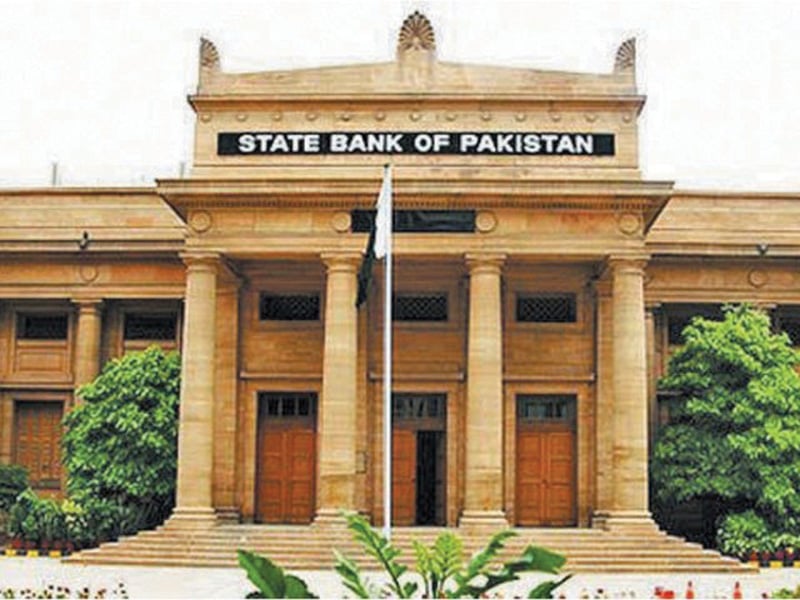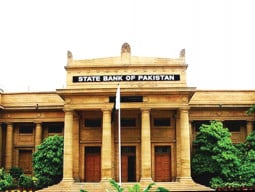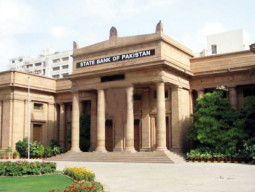
Pakistan’s central bank has injected Rs1.25 trillion into conventional and Shariah-compliant banks for up to 28 days apparently in an effort to overcome shortage of funds and meet financing demand from the cash-strapped government.
Besides, the Karachi Inter-bank Offered Rate (Kibor) – the six-month benchmark interest rate at which banks lend money to each other – dropped more than three percentage points to 21.38% on Friday compared to the recent peak of 24.70%.
The decline in Kibor suggests that the government’s reliance on bank borrowing may go down significantly, as it is borrowing mainly to bear the interest cost of debt.
Kibor is coming down following projection that the central bank will gradually cut its key policy rate by seven percentage points to 15% by the end of December 2024. The current high policy rate is a big reason for the elevated interest payments.
Secondly, the rate reduction will encourage the private sector to return to banks for their credit needs for initiating new projects and expanding the existing ones.
Talking to The Express Tribune, Akseer Research Director Mohammad Awais Ashraf said banks were short of liquidity and were unable to meet borrowing demand from the government, which required funds to bridge its budget deficit.
This situation forced the central bank to inject funds worth Rs1.25 trillion through open market operations (OMOs) on Friday.
The government is facing the budget gap mainly due to colossal interest payments and the cost of salaries for its employees and pensions for the retired people.
Ashraf recalled that the central bank had injected Rs8.5 trillion into the banking system at the outset of December 2023, which signaled that the deposits with banks were insufficient to meet the government’s high borrowing needs.
Banks had already lent around 85% of total deposits to the government by December 2023. According to the central bank, the government has planned to borrow around Rs8 trillion from banks between December 2023 and February 2024.
Ashraf pointed out that government borrowing from banks had continued to grow since July 2019 when the International Monetary Fund (IMF) asked it to stop borrowing from the central bank.
Under the mechanism, the central bank injects funds into banks through OMOs and then banks lend to the government through the purchase of debt instruments such as T-bills and Pakistan Investment Bonds (PIBs).
Read SBP report keeps GDP growth projection at 2-3%
The government’s reliance on domestic commercial borrowing has remained high, though the Federal Board of Revenue (FBR) collected higher revenues in the first six months of FY24 as compared to the IMF’s targets. Growing expenditures of the government have prompted it to borrow from banks.
The demand for credit from the private sector is next to nothing because of interest rate spike. Rather they are retiring their old debt.
The central bank has left its policy rate unchanged at the peak of 22% since July 2023, discouraging the private sector from borrowing to set up new factories or extend the existing production lines.
The government has restricted private sector growth in an effort to slow down the soaring inflation recorded at 29.7% in December 2023.
The Ministry of Finance, in its Economic Outlook for December 2023, said “private sector has retired Rs45.5 billion in the first five months (Jul-Nov) of the current fiscal year as compared to borrowing of Rs86 billion in the same period of last year”.
Topline Securities CEO Muhammad Sohail said the other day on social media platform X that interest rate in Pakistan had already dropped 3%. He mentioned that the benchmark interest rate (six-month Kibor) had decreased from the recent peak of 24.7% to 21.5%. Though the State Bank has kept the policy rate unchanged at 22% since July 2023, there is a high probability that the rate will come down in the coming months. “We expect a 700-basis-point cut in the policy rate in 2024, from the current 22% to 15%.”
Published in The Express Tribune, January 7th, 2024.
Like Business on Facebook, follow @TribuneBiz on Twitter to stay informed and join in the conversation.





















COMMENTS
Comments are moderated and generally will be posted if they are on-topic and not abusive.
For more information, please see our Comments FAQ